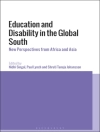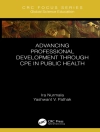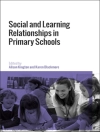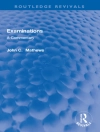Refuge in a Moving World draws together more than thirty contributions from multiple disciplines and fields of research and practice to discuss different ways of engaging with, and responding to, migration and displacement.
The volume combines critical reflections on the complexities of conceptualizing processes and experiences of (forced) migration, with detailed analyses of these experiences in contemporary and historical settings from around the world. Through interdisciplinary approaches and methodologies – including participatory research, poetic and spatial interventions, ethnography, theatre, discourse analysis and visual methods – the volume documents the complexities of refugees’ and migrants’ journeys. This includes a particular focus on how people inhabit and negotiate everyday life in cities, towns, camps and informal settlements across the Middle East and North Africa, Southern and Eastern Africa, and Europe.
A key dynamic documented throughout the book is the multiple ways that responses to displacement are enacted by people with personal or family experiences of (forced) migration. These people appear in many roles: researchers, writers and artists, teachers, solidarians, first responders, NGO practitioners, neighbours and/or friends. Through the application of historically and spatially sensitive, intersectional and interdisciplinary lenses, the contributors explore the ways that different people – across axes of religion, sexuality, gender and age – experience and respond to their own situations and to those of other people, in the context of diverse power structures and structural inequalities on the local, national and international level.
Ultimately, Refuge in a Moving World argues that working collaboratively through interdisciplinary approaches and methodologies has the potential to develop nuanced understandings of processes of migration and displacement, and, in turn, to encourage more sustainable modes of responding to our moving world.
Praise for Refuge in a Moving World
‘An important resource for those researching displacement, but it is also a good read for those seeking to better understand, prepare for or stay in solidarity with those who have had to seek refuge and make a home on different soil.’ LSE Review of Books
‘Interdisciplinarity is […] one of this book’s most significant contributions. Placing social scientists, urban planners, artists, activists, and other interlocutors in conversation with each other greatly enriches the scholarship on forced migration and displacement. … The second most important contribution of this volume is its ability to go beyond academia and to speak to a wider public. Bringing the scholarly discourse about displacement outside academia and making it accessible to a wider public is greatly needed to undermine the concept of “crisis” and the binary understandings of refugeehood and refugees.’
Refuge
‘a testament to the exciting development of innovative methods and approaches demonstrating a potential to move our field forward by expanding how knowledge is produced, particularly through creative methods and approaches…the book’s strength is the refugee-centred approach taken throughout’
International Journal of Refugee Law
‘available as open access, the anthology will be a valuable resource for students across many disciplines, especially those wanting to probe beyond legal categories, experiment with collaborative and visual approaches, and challenge literary and narrative conventions. For those researching forced displacement, this collection can also put them on the track to the colonial origins of camps and the question of why the search for refuge in a moving world is still with us.’
Journal of the Royal Anthropological Institute (JRAI)
Cuprins
List of figures and tables List of abbreviations List of contributors Acknowledgements Introduction: Refuge in a moving world: Refugee and migrant journeys across disciplines Elena Fiddian-Qasmiyeh
Part I: Researching and Conceptualizing Displacement in a Moving World
1. Negotiating research and life spaces: Participatory research approaches with young migrants in the UK Semhar Haile, Francesca Meloni and Habib Rezaie 2. Voices to be heard? Reflections on refugees, strategic invisibility and the politics of voice Semhar Haile 3. Stories of migration and belonging Eva Hoffman and Jonny Steinberg in conversation with Tamar Garb 4. Writing the camp, writing the camp archive: The case of Baddawi refugee camp in Lebanon Yousif M. Qasmiyeh 5. Making home in limbo: Belgian refugees in Britain during the First World War Christophe Declercq 6. Exploring practices of hospitality and hostility towards migrants through the making of a documentary film: Insights from research in Lampedusa Michela Franceschelli and Adele Galipò 7. Mediterranean distinctions: Forced migration, forceful hope and the analytics of desperation Alice Elliot 8. Does climate change cause migration? Ilan Kelman Part II: Responding To Displacement: Advocacy, Aesthetics and Politics in a Moving World 9. We Are Movers: We are towers of strength
We are Movers project team: Amalia Pascal, Aminat Amy North, Ann Oladimeji, Bahati Dan, Becky Ayeni, Claudia Lapping, Debby Kareem, Drucilla Namirembe, Esther O. Odere, Hanna Rettalack, Harriet Ibeneme, Ijeoma, Iman Azzi, Neelam, Nneka, Omoh Juliet, Olushola Owolabi, Promise Enabosi, Patrica Akpapuna, Rachel Benchekroun, Rachel Rosen, Raphaela Armbruster, Sara Joiko Mujica, Tabitha Millet, Theresa Ajagu and Zoline Makosso
10. Advocacy for LGBTI asylum in the UK: Discourses of distance and proximity Thibaut Raboin 11. The unintended consequences of expanding migrant-rights protections Ralph Wilde 12. Visual politics and the ‘refugee’ crisis: The images of Alan Kurdi Tom Snow 13. Crossing borders, bridging boundaries: Reconstructing the rights of the refugee in comics Dominic Davies
14. Theatre and/as solidarity: Putting yourself in the shoes of a refugee through performance Marta Niccolai 15. The empty space: Performing migration at the Good Chance Theatre in Calais Tom Bailey 16. Care in a refugee camp: A case study of a humanitarian volunteer in Calais Sarah Crafter and Rachel Rosen 17. The Jungle Yousif M. Qasmiyeh Part III: Ongoing Journeys: Safety, Rights and Well-being in a Moving World 18. Palliative prophecy: Yezidi perspectives on their suffering under Islamic State and on their future Tyler Fisher, Nahro Zagros and Muslih Mustafa 19. Queer Russian asylum seekers in Germany: Worthy refugees and acceptable forms of harm? Richard C.M. Mole 20. Aspects of loss and coping among internally displaced populations: Towards a psychosocial approach Maureen Seguin 21. Thriving in the face of severe adversity: Understanding and fostering resilience in children affected by war and displacement Karolin Krause and Evelyn Sharples 22. Exploring the psychosocial impact of cultural interventions with displaced people Helen J. Chatterjee, Clelia Clini, Beverley Butler, Fatima Al-Nammari, Rula Al-Asir and Cornelius Katona Part IV: Spaces of Encounter and Refuge: Cities and Camps in a Moving World
23. Black Markets: Opaque sites of refuge in Cape Town Huda Tayob 24. Learning in and through the long-term refugee camps in the East African Rift Nerea Amorós Elorduy 25. The Palestinian scale: Space at the intersection of refuge and host-country policies Samar Maqusi 26. Shifting the gaze: Palestinian and Syrian refugees sharing, making and contesting space in Lebanon Elena Fiddian-Qasmiyeh 27. Different shades of ‘neutrality’: Arab Gulf NGO responses to Syrian refugees in northern Lebanon Estella Carpi 28. Navigating ambiguous state policies and legal statuses in Turkey: Syrian displacement and migratory horizons Charlotte Loris-Rodionoff 29. Exploring in-betweenness: Alice and spaces of contradiction in refuge S. Tahmineh Hooshyar Emami 30. The imperfect ethics of hospitality: Engaging with the politics of care and refugees’ dwelling practices in the Italian urban context Giovanna Astolfo and Camillo Boano 31. Producing precarity: The ‘hostile environment’ and austerity for Latin Americans in super-diverse London Mette Louise Berg 32. Encountering Belgians: How Syrian refugees build bridges over troubled water Robin VandevoordtIndex
Despre autor
Elena Fiddian-Qasmiyeh is Professor of Migration and Refugee Studies and Co-Director of the Migration Research Unit at UCL, where she is also the Director of the Refuge in a Moving World research network. Her current interdisciplinary research, supported by the AHRC-ESRC, European Research Council and Leverhulme Trust, examines experiences of and responses to displacement in the Middle East. Her books include The Ideal Refugees (2014), The Oxford Handbook of Refugee and Forced Migration Studies (2014), South-South Educational Migration, Humanitarianism and Development (2015), and The Handbook of South-South Relations (2018). She also co-edits the Migration and Society journal.












